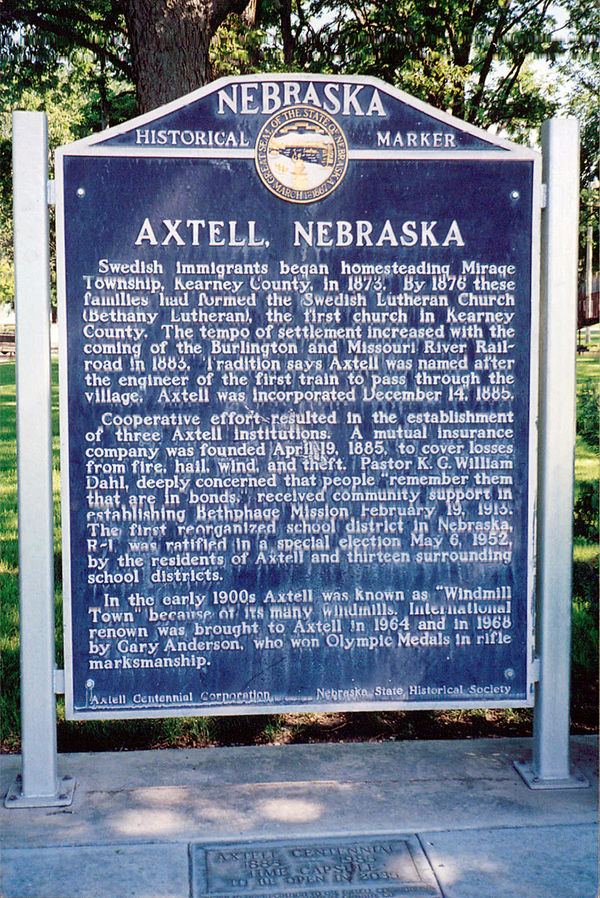Difference between revisions of "Nebraska Historical Marker: Axtell, Nebraska"
| Line 15: | Line 15: | ||
==Bibliography== | ==Bibliography== | ||
| − | + | Elton A. Perkey, “Perkey’s Nebraska Place Names” (1995), Nebraska State Historical Society | |
{{Marker:Program}} | {{Marker:Program}} | ||
Revision as of 12:56, 19 September 2017
Location
301-399 Main St, Axtell, Kearney County, Nebraska
View this marker's location 40.478801, -99.12689
View a map of all Nebraska historical markers, Browse Historical Marker Map
Marker Text
Swedish immigrants began homesteading Mirage Township, Kearney County, in 1873. By 1876 these families had formed the Swedish Lutheran Church (Bethany Lutheran), the first church in Kearney County. The tempo of settlement increased with the coming of the Burlington and Missouri River Railroad in 1883. Tradition says Axtell was named after the engineer of the first train to pass though the village. Axtell was incorporated December 14, 1885. Cooperative effort resulted in the establishment of three Axtell institutions. A mutual insurance company was founded April 19, 1885, to cover losses from fire, hail, wind, and theft. Pastor K. G. William Dahl, deeply concerned that people "remember them that are in bonds," received community support in establishing Bethphage Mission February 19, 1913. The first reorganized school district in Nebraska, R-1, was ratified in a special election May 6, 1952, by the residents of Axtell and thirteen surrounding school districts. In the early 1900s Axtell was known as "Windmill Town" because of its many windmills. International renown was brought to Axtell in 1964 and in 1968 by Gary Anderson, who won Olympic Medals in rifle marksmanship.
Further Information
Bibliography
Elton A. Perkey, “Perkey’s Nebraska Place Names” (1995), Nebraska State Historical Society
Marker program
See Nebraska Historical Marker Program for more information.
